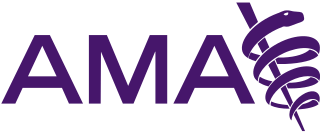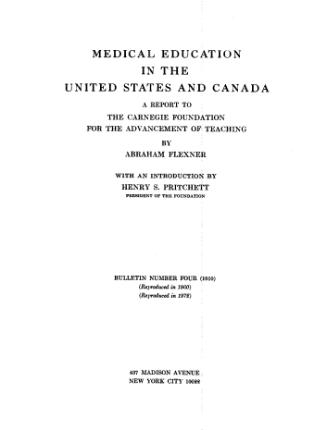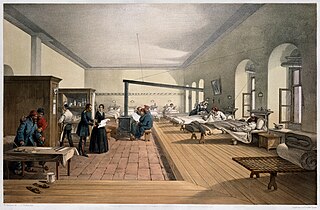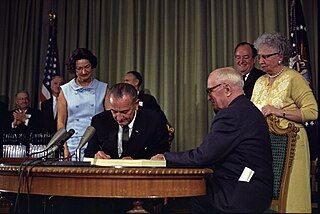
Medicine is the science and practice of caring for patients, managing the diagnosis, prognosis, prevention, treatment, palliation of their injury or disease, and promoting their health. Medicine encompasses a variety of health care practices evolved to maintain and restore health by the prevention and treatment of illness. Contemporary medicine applies biomedical sciences, biomedical research, genetics, and medical technology to diagnose, treat, and prevent injury and disease, typically through pharmaceuticals or surgery, but also through therapies as diverse as psychotherapy, external splints and traction, medical devices, biologics, and ionizing radiation, amongst others.

A physician, medical practitioner, medical doctor, or simply doctor is a health professional who practices medicine, which is concerned with promoting, maintaining or restoring health through the study, diagnosis, prognosis and treatment of disease, injury, and other physical and mental impairments. Physicians may focus their practice on certain disease categories, types of patients, and methods of treatment—known as specialities—or they may assume responsibility for the provision of continuing and comprehensive medical care to individuals, families, and communities—known as general practice. Medical practice properly requires both a detailed knowledge of the academic disciplines, such as anatomy and physiology, underlying diseases, and their treatment, which is the science of medicine, and a decent competence in its applied practice, which is the art or craft of the profession.
The Declaration of Geneva was adopted by the General Assembly of the World Medical Association at Geneva in 1948, amended in 1968, 1983, 1994, editorially revised in 2005 and 2006 and amended in 2017.
Patient rights consist of enforceable duties that healthcare professionals and healthcare business persons owe to patients to provide them with certain services or benefits. When such services or benefits become rights instead of simply privileges, then a patient can expect to receive them and can expect the support of people who enforce organization policies or legal codes to intervene on the patient's behalf if the patient does not receive them. A patient's bill of rights is a list of guarantees for those receiving medical care. It may take the form of a law or a non-binding declaration. Typically a patient's bill of rights guarantees patients information, fair treatment, and autonomy over medical decisions, among other rights.
Medical ethics is an applied branch of ethics which analyzes the practice of clinical medicine and related scientific research. Medical ethics is based on a set of values that professionals can refer to in the case of any confusion or conflict. These values include the respect for autonomy, non-maleficence, beneficence, and justice. Such tenets may allow doctors, care providers, and families to create a treatment plan and work towards the same common goal. These four values are not ranked in order of importance or relevance and they all encompass values pertaining to medical ethics. However, a conflict may arise leading to the need for hierarchy in an ethical system, such that some moral elements overrule others with the purpose of applying the best moral judgement to a difficult medical situation. Medical ethics is particularly relevant in decisions regarding involuntary treatment and involuntary commitment.

Health care, or healthcare, is the improvement of health via the prevention, diagnosis, treatment, amelioration or cure of disease, illness, injury, and other physical and mental impairments in people. Health care is delivered by health professionals and allied health fields. Medicine, dentistry, pharmacy, midwifery, nursing, optometry, audiology, psychology, occupational therapy, physical therapy, athletic training, and other health professions all constitute health care. The term includes work done in providing primary care, secondary care, tertiary care, and public health.

The American Medical Association (AMA) is an American professional association and lobbying group of physicians and medical students. Founded in 1847, it is headquartered in Chicago, Illinois. Membership was 271,660 in 2022.

Publicly funded healthcare is a form of health care financing designed to meet the cost of all or most healthcare needs from a publicly managed fund. Usually this is under some form of democratic accountability, the right of access to which are set down in rules applying to the whole population contributing to the fund or receiving benefits from it.

Primary care is a model of health care that supports first-contact, accessible, continuous, comprehensive and coordinated person-focused care. It aims to optimise population health and reduce disparities across the population by ensuring that subgroups have equal access to services.

The Flexner Report is a book-length landmark report of medical education in the United States and Canada, written by Abraham Flexner and published in 1910 under the aegis of the Carnegie Foundation. Flexner not only described the state of medical education in North America, but he also gave detailed descriptions of the medical schools that were operating at the time. He provided both criticisms and recommendations for improvements of medical education in the United States.

The American College of Physicians (ACP) is a Philadelphia-based national organization of internal medicine physicians, who specialize in the diagnosis, treatment, and care of adults. With 161,000 members, ACP is the largest medical-specialty organization and second-largest physician group in the United States. Its flagship journal, the Annals of Internal Medicine, is among the most widely cited peer-reviewed medical journals in the world.

Bolam v Friern Hospital Management Committee [1957] 1 WLR 582 is an English tort law case that lays down the typical rule for assessing the appropriate standard of reasonable care in negligence cases involving skilled professionals such as doctors. This rule is known as the Bolam test, and states that if a doctor reaches the standard of a responsible body of medical opinion, they are not negligent. Bolam was rejected in the 2015 Supreme Court decision of Montgomery v Lanarkshire Health Board in matters of informed consent.

The Hastings Center is an independent, nonpartisan bioethics research institute and think tank based in Garrison, New York.
Patient advocacy is a process in health care concerned with advocacy for patients, survivors, and caregivers. The patient advocate may be an individual or an organization, concerned with healthcare standards or with one specific group of disorders. The terms patient advocate and patient advocacy can refer both to individual advocates providing services that organizations also provide, and to organizations whose functions extend to individual patients. Some patient advocates are independent and some work for the organizations that are directly responsible for the patient's care.

Health administration, healthcare administration, healthcare management or hospitalmanagement is the field relating to leadership, management, and administration of public health systems, health care systems, hospitals, and hospital networks in all the primary, secondary, and tertiary sectors.

The philosophy of healthcare is the study of the ethics, processes, and people which constitute the maintenance of health for human beings. For the most part, however, the philosophy of healthcare is best approached as an indelible component of human social structures. That is, the societal institution of healthcare can be seen as a necessary phenomenon of human civilization whereby an individual continually seeks to improve, mend, and alter the overall nature and quality of their life. This perennial concern is especially prominent in modern political liberalism, wherein health has been understood as the foundational good necessary for public life.
The German Medical Association (GMA), founded in 1947 and based in Berlin, is the co-ordinating body of physicians’ self-regulation in Germany. It co-ordinates the activities of the 17 State Chambers of Physicians which are responsible for regulation of the medical profession. As of 31 December 2007, the GMA represents the professional interests of the more than 400,000 physicians. The German Medical Association is co-owner of the medical journal Deutsches Ärzteblatt and of the German Agency for Quality in Medicine, a member of the Guidelines International Network—together with the National Association of Statutory Health Insurance Physicians.

The Louisiana Department of Health (LDH), formerly known as the Louisiana Department of Health and Hospitals, is a state agency of Louisiana, headquartered in Baton Rouge. It is Louisiana's largest state agency with a budget of $21 billion and approximately 8,274 personnel. The agency oversees the health of the population under its current secretary, Ralph L. Abraham, M.D..
The Collège des médecins du Québec (CMQ), or Quebec College of Physicians, is a professional organization responsible for setting educational standards for physicians, regulating the practice of medicine, and policing its members at the provincial level in Quebec. Its mission is to promote quality medical care in order to protect the public. Membership with the CMQ is mandatory in order to practice medicine within the province of Quebec, Canada.
German Ethics Council is an independent council of experts in Germany addressing the questions of ethics, society, science, medicine and law and the probable consequences for the individual and society that result in connection with research and development, in particular in the field of the life sciences and their application to humanity. Its duties include informing the public and encouraging discussion in society, preparing opinions and recommendations for political and legislative action for the Federal Government and the German Bundestag as well as cooperating with national ethics councils and comparable institutions of other states and of international organisations.












